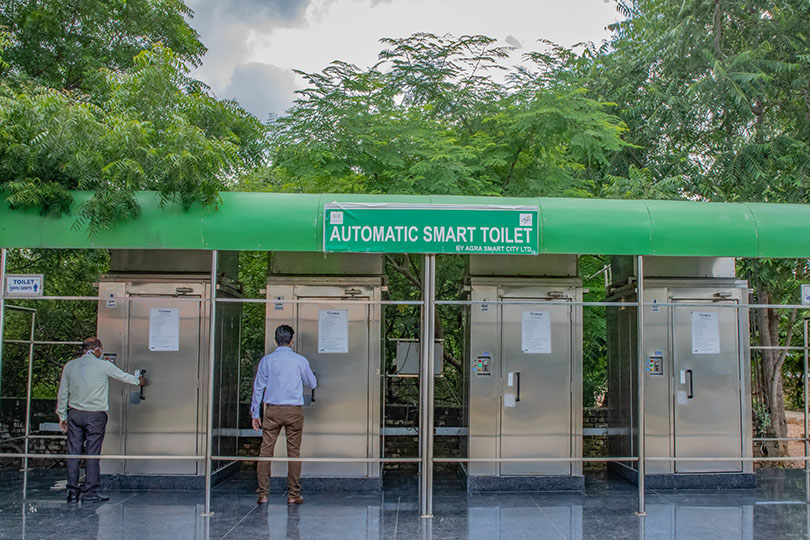Automated Self Cleaning Toilets



SMART AGRA
Inadequate sanitation takes a tremendous toll on the quality of peoples’ lives, the environment, and the economy. Without effective sanitation, there is a high risk of epidemic diseases such as cholera, pollution of water supplies and contamination of the surroundings. The requirement for public toilets is increasing exponentially with the economic development, urbanization and floating population. Without proper maintenance, public toilets are useless and a health hazard to the public. People normally keep less hygiene inside public toilets than their personal toilets. Unmanned self-cleaning public toilets are the answer for today’s public sanitation requirements. Its cost and failure rate in the past was very high and people were reluctant to use this technology. However, the developments in the ICT and automation technologies have solved the operational bottle necks, and have created more interest in self-cleaning public toilets. Online monitoring and sensor technologies used in automated toilets have made them one of the most cost effective systems for public sanitation.
